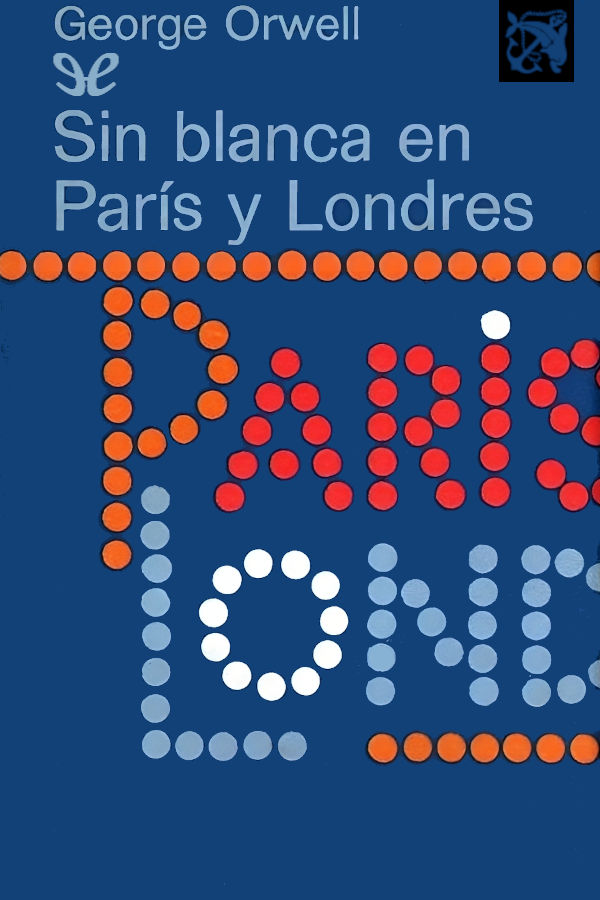oleebook.com
Sul nazionalismo de George Orwell
de George Orwell - G├®nero: Italian
Sinopsis
La tendenza a ┬½identificare s├® stessi in una singola nazione o in un┬Æunit├Ā di altro tipo, collocandola al di l├Ā del bene e del male e non riconoscendo altro dovere che la promozione dei suoi interessi┬╗: in questo, secondo Orwell, consiste il nazionalismo, che pu├▓ assumere forme diverse, dall┬Æappartenenza a un gruppo politico o religioso alla difesa di ideologie di varia colorazione. In tutti i casi comporta la soppressione dello spirito critico, la censura e l┬Æautocensura, l┬Æasservimento cieco a un┬Æidea di realt├Ā a discapito della realt├Ā stessa. Scritto durante le ultime fasi della seconda guerra mondiale, in uno dei periodi pi├╣ bui della storia occidentale, questo breve saggio ├© un testo essenziale per comprendere un fenomeno che richiama i grandi totalitarismi del ┬Æ900, ma che in realt├Ā rappresenta ancora oggi una delle principali minacce alle democrazie liberali. Anzi, proprio in tempi come il nostro diventa particolarmente pericoloso, quando l┬Æ┬½incertezza generale riguardo a ci├▓ che succede realmente rende pi├╣ facile aggrapparsi a credenze stravaganti┬╗.
Descargar
Descargar Sul nazionalismo ePub GratisLibros Recomendados - Relacionados
Rese├▒as Varias sobre este libro
We've not changed much since Orwell wrote his essays on nationalism during the Second World War.
Well now, that is not shocking, but quite depressing. The enemies of specific tribes may have changed, but the lunacy, as Orwell calls it, to see one power unit (the own one, that is, of course) as absolutely, unfailingly good, and all other power units as evil, or at least bad or inferior, still reigns unbeaten on our tiny and overcrowded lunatic asylum planet. Even if Orwell discusses the tribalisms of his time, political Catholicism, Communism, Trotzskyism and Antisemitism, we could easily find identical group behaviours in our current landscape of opposing thought models - which are at the same time excruciatingly similar, in that they all follow the exact definition Orwell suggests for the psychological profile of nationalist behaviour:
-Obsession: seeing the superiority of the chosen power unit in every single aspect of life, no matter how farfetched it may seem to a non-nationalist
-Instability: passionate support for a power unit is strong, but transferable, as it is the absolutist state of mind that the nationalist stays loyal to, not a specific object of worship (thus a Communist caneasily become a Trotzskist, while remaining a tribally oriented personality)
-Indifference to reality: as there is greater truth in the nationalist idea than in actual evidence, history can be reinterpreted or rewritten according to the need of the moment, without any qualms whatsoever. A "greater" loyalty reigns.
And what can we do about it? Not much, if we just try to identify tribalism in the "others".
We have to start by identifying where our own faultlines are. Do we find ourselves getting frustrated when people criticise our church? Our society? Our gender role? Our political affiliation? Do we argue passionately against rhyme and reason regardless of evidence to prove certain points? If we manage to see how nationalism or tribalism affects our own thought processes and actions, we might gain understanding of the human need to subordinate oneself to a power unit for better or worse, and we might start being able to change patterns of hate. That requires a lot of honesty towards oneself, and a lot of patience towards others. For the power units themselves are effective tools, and they are not ly to support critical and individual thinking outside the tribal menu. It is a lonely job to resist tribalism.
Reading Orwell is a good start, though!nonfiction orwell persuasive149 s Kyriakos SorokkouAuthor┬Ā6 books209 Read
??? ?????? ?? ????? ??? ?? ??? ????????? ????? ??? ?? ?????? ??? ??????? / ? ????????? ??' ???? ?? ?????? ??? ?????? ??? ?????? ???? ?????????? ??? ???? ????? ???????? ???? ????????? ?????.
?? ?????? ???? ?????? ????? 7 ??????? ??? ??? ???? ???? ?????????????? ???? ??? ??? ??????? ?????? ??? ????????? ??? ??? ??????.
??? ?? ???????? ?????? ??????? ?? ????????.
????? ?????????? ??? ???? ?????????????? ???????? ?? ????????? ?? ????????? ???????:
? ???????? ??? ? ??????? ??????
????? ?????????? ???????? ?? ????????? ?? ????:
«[...] ? ?????????? ???????????? ??? ????????????? ???????? ??? ????? ??? ??? ????? ?????? ??? ?????? ???? ??? ??? ???? ?????????? ??????. ?????? ? ???? ?? ??????? ??? ??? ??????? ???, ???? ?? ????? ??? ????????? ?????????? ???????, ????? ????? ??? ??? ?????? ??? ???????????? ??? ??? ???? ???????? ? ?????.»
?????? ???? ????? ???? ?????????? ???????????? ???? ?????, ??? ???? ????? ???? ?? ?????? ??? ???? ??? ????? ???.
????? ?????????????? ???????? ?? ????????? ?? ????:
«??????????? ?? ??????????? ??? ??????? ???????????? ??? ??????????????? ?????????, ?? ??????? ?? ?????? ????????? ????????????? ??? ???? ??????? ??????? ?? ??? ????????????? ???? ?????. [...] ????????, ????, ?? ????????? ??????????? ??? ????????? ??? ??? [...] ?? ????????? ???? ?????????????? ??? ????????, ???? ??? ????? ? ???? ????, ??????? ??????????? ??? ???????? ???????, ?????? ????? («??????? ??????????», «?? ??? ?????????? ???? ??? ?? ??????? ???») ????? ??? ???? ???????? ??????????.»
?????? ? ????? «??????? ??????????» ??????????????? ???? ????? ??? ???? ?????????????? ???? ?????? ????????? ???? ? ?????????? ????? ??????? ???? lite.
??? ???????? ??????? ? ??????? ???????????? ?? ??? ?????????, ??????????? ???????, ??? 1? ??? 2? ????????? ??????, ??? ???????? ???????, ?????????????? ???? ??? ??????, ??? ?????????, ??? ??????, ?????????? ??? ??????????? ?? ??? ???????? ??. ?. ????? (??????? ??? ??????, ? ?????? ??? ??????), ?????? ??????? (?? ????????? [?????????], ?? ????? ??? ?? ??????) ??? ????.
??? ?????? ??? ?????? ?? ????????? ???? ??? ?? ???? ??? ?????? ????????? ????? (??? ????????? ?? ??????? ?????? ?. ????? ??? ?. ????????)non-fiction49 s Lisa (NY)1,679 744
The three essays in this volume, Notes on Nationalism, Anti-Semitism in Britain and The Sporting Spirit all concern themselves with the "habit of identifying oneself with large power units and seeing everything in terms of competitive prestige.” Orwell uses the term nationalism as a negative trait which often springs from hate - in which people are put in categories and seen as good or bad to reinforce an individual's narrow view. These essays were written in 1945 but are very relevant today.
Penguin Modern Classics
#1 - Letter from Birmingham Jail by Martin Luther King, Jr.
#2 - Television Was a Baby Crawling Toward That Deathchamber by Allen Ginsberg
#3 - The Breakthrough by Daphne Du Maurier
#4 - The Custard Heart by Dorothy Parker
#5 - Three Japanese Short Stories (3 authors)
#6 - The Veiled Woman by Anais Nin
#7 - Notes on Nationalism by George Orwellclassics-20th-century essays penguin-modern-classics32 s Steven Godin2,553 2,696
Good essay that grabs ones attention on the subject of nationalism. Orwell approaches the idea with an unbiased opinion, with the concept of nationalism being more loyal to a philosophy to the point you start to ignore its failings and stop using reason to analyse it in comparison to other ideas.
Three key points make up his concept - Positive, Negative and Transferred, and how different types of political ideologies can be nationalistic without representing a nation state. At times he is undone by his criticism of pacifists and sweeping statements of other groups of people, which slightly tarnished what was an otherwise interesting piece of writing.essays great-britain non-fiction ...more26 s Daren1,392 4,442
A Penguin Modern book containing three essays from George Orwell - taken from his aptly named book Essays.
The titular - Notes on Nationalism, where Orwell defines the difference between nationalism and patriotism before tearing the former to pieces. There are lots of grabable quotes such as:
┬ōThe nationalist not only does not disapprove of atrocities committed by his own side, but he has a remarkable capacity for not even hearing about them.┬ö
┬ōOne prod to the nerve of nationalism and the intellectual decencies can vanish, the past can be altered, and the plainest facts can be denied.┬ö
The second is titled Antisemitism in Britain where Orwell tackles the lack of basis for, and the denial in Britain around antisemitism. He points out the unfortunate situation the antisemite is in where they cannot support Hitlers assertions, and oppose the Jews.
The third essay is titled The Sporting Spirit which revolves around the visit to Britain of the Moscow Dynamos on their 1945 tour, where they played against British club sides - and their media accused Arsenal of being an 'All England' team, but widens into a short essay of the obsession of sport by England and other countries.
┬ō[Football] has nothing to do with fair play. It is bound up with hatred, jealousy, boastfulness, disregard of all rules and sadistic pleasure in witnessing violence: in other words it is war minus the shooting.┬ö
I read this short book this afternoon, when it was hot and I was unmotivated to pick up the Sven Hedin book I am reading - and in hindsight a selection of essays is probably not the lite reading I desired. I am not a great reader of essays with political or sociological discussions. It is all a bit highbrow for my simple reading tastes!
3.5 stars, rounded up to 4****.4-star non-fiction non-fiction-short-story-ies ...more25 s2 comments Diz1,689 110
This slim volume contains three essays--one on nationalism, one on antisemitism, and one on the connection between sports and nationalism.
The first essay is particularly important as countries all over the world are dealing with growing nationalist movements. First, Orwell draws a clear line between patriotism, love for one's land and culture, and nationalism, an obsession with one's in-group achieving victory over other groups. Interestingly, as Orwell defines it, nationalism isn't limited to nations. It can also apply to other groups such as political party or religious group. The three characteristics of nationalism are obsession (thinking, talking or writing about the superiority of one's in-group to the exclusion of other topics), instability (one may support one's in-group despite it changing drastically or may transfer loyalty to another group), and indifference to reality (facts will not sway one's allegiance to one's in-group). This form of nationalism is rampant now, so this essay is relevant now more than ever.essay politics sports21 s Arupratan158 229
???? ????????? ???? ??????? ????? ????? ???? ????? ???????-?????? ????? ???? ???????????? ??? ??? ???? ????????? ??????? ???????? ??? ?????????? ????? ??? ????? ?????? ???? ???? ??, ??? ?? ????? ??????? ?????? ??? ???? ????????????? ???? ???? ????? ?????? ??????? ??????? ?????? ???? ????? ??????????? ??????? ?????????? ??????? ????? ????? ?????????? ??????? tool, ??? ?????????? ????? ???? ???? ???????? ????? ?????? ????┬Ś ???? ?????? ??-???????? ?????? ?????????? "?????" ???? ????????
?? ????? ????? ????? ????????? ???? "???????????" (nationalism) ???? ??????? ?????? ?????? ?????? ???????? ??????? ????? ?????????, "Notes on Nationalism", ???????? ?????????? ??? ?????? ??? ???????? ??? ???????? ????????? ?? ??? ????? ????????? ?? ????????? ???????? ????????? ?????? ?????? ????????? ??????????????? ??? ??????????? ???????? ????? ????????? ????? ???-????? ????? ???????? ?????? ???? ?? ??? "??????" ????????? ??????? ????? ??????????? ????? ?????, ????? ?? ?????????? ?????? ?? ???????? ???? ???? ????? ??????? ??? ?????? ????? ???? ???? ????????? ????????!
????????? ??????? ???? ?????? ?????? ??? ???????? ??, ???????? ??????? ????? ??????? ????, "???????????" ??? "????????" (patriotism)┬Ś ???? ????? ?????? ???????? ???? ????????? ???????, ?? ??? ???? ????? ??? ??? ??????? ???? ??????? ????-??????? ????????? ?????-????????? ???? ????? ?????, ??-????? ???? ??????????? ?????? ???????? ????????? ??? ??? (????? ?????? ???) ??????? ?????? ???, ???? ??????? ??????? ?????? ??? ???? ??, ?? ?? ????, ??????? ????? ???????? ?????? ???? ?????? ??? ???? ??? ??? ????? ???, ????? ????? ????? ???? ?????? ???? ??? ??? ?????????? "????" ???, ??? ????? ?????? ???????? ????? ??????? ???????? ??? ??!
????? ??????? ?????????? ??????? ??????? ??? ???? ??????????? ???? ????????? ???? ????????? ??????? ????????????? ?????? ? ??????????? ??? ???? ???????????? ????? ??? ???????? ???? ??????, ???? ???????????? ???? ????? ??????? ??? ???????? ????? ???? ???? ??????? ??? ????????? "???????????" ????? ???? ???? ????? ??????? ?? ???????? ??? ?????? ?????? ??-????, ?????? ??? ?????? ????? ????? ??? ??? ????????? ??????? ?????? ???? ????, ?????? ?? ??? ????? ???? ???? ??????? ????? ???? ???? ??? ??? ???? : "????? ???, ???? ??? ???? ???? ?????!"
?????? ????????????? ????? ???? ??? ?????? ?? ??????? ???? ?????? ??????????? ???? ????? ?? ???? ????? ????? ?????? ??????? ???, ????? ???? ???? ???????????? ???? ????????? ?????? ????? (??? ??? ?????? ????) ????? ???? ???????? ????????? ????? (??? ??? ???????????) ????? ??????? ????????? ????? (??? ??? "?????-???????-?????????") ????? ??????? ?????? ???? ?????? ????? ??????? ?????????? (pacifist) ????? ???????????????? ???????? ?????? ????? ??????????????? ??? ???? ???? ???????? ???? ????, ??????????? "??????" ?????? ????? ?????? ??????????? ?????? ????? ????? ?????? ???????????? ???-????????? ???????? ??? ???????
?????? ?????? "???????????" ??????? ?????? ??????? ????????? ??????????? ??????? ???? ??????? ??????, ????? ???????? ????, ????? ???? ???? ??????? ??????, ????? ?????????? ???????? ????? ???? ??????? ??????, ???? ???? ??? ??????????? ?????? ???? ??????? ??????┬Ś ??? ???? ???????????? ???????? ???? ???? ????? ???? : "???? ??? ??????? ????, ????? ???? ??????/ ????? ???? ????? ?????, ???? ??? ??????? ???? ??? ????? ?????, ???? ??? ????????/ ????? ?? ?? ????? ?? ???, ????? ???? ?? ???"
????? ???????? ?????? ?????? ??? ?????? ?????-????? ???? ???? ???????? ?????????, "Anti-Semitism in Britain"┬Ś ???????? ??????????????? ??????????? ???????/ ???????? ???????? ??? ?????? ???? ???? ??????, ?????? ????????? ?????? ???? ????, ????????? ???????? ???? ????? ????? ??? ??? ???????? ???????? ??????? ?????? ?????? ???? ????? ??? ???? ??????? ??? ??? ????? ????? ??? ???? ????, ??? ??????? ???? ???? "???????"-?? ???? ???? ?????????? ????? ?????? ??????? ???????, ???? ?? ?? ???????? ???? ????? ???? ????? ??????, ?????? ??-????????? ???? ???? ??????? (????? ????????), ???? ???? ???? ??????????? ???, ?????? ?????? ??? ???????? ???????? ??????? ????? ???????? ????? : "????? ??????? ???!"
"The Sporting Spirit" ???? ?????? ??????????? ???? ?????????? ????? ????? ?????? ??????????? ??????? ????? ???? ???? ????-????????? ??????? ????? ????? ??????????-????????? ????? ??????? ????????? ????? ??????? ?????? ?????? ??? ??????, ????? ???? ?? ??????? ????? ????? ??? ??? ???? ???????? ??? ??? ??????? ????????? ??????? ?????? ????? ????? ??????? ?????? ?????? ???? ????? ??????? ?????? ?????????? ??????, ???? ??? ???????? ????????????? ???? ?? ???? ??? ??????? ???? ????? ?????? ???, ????? ???? ???! ?? ??? ???? ??????? ???? ?????? ??????? ?????? ??????, ???? ??? ??????? ????? ?????? ??? ??????? ??-???? ????? ???????????? ????? ????? ???? ??? ???????? ??-???? ????? ????? ???????? ???????? ???? ?? ??????, ????? ?? ????? ???? ???, ????? ????? ????? ?????? ??? ?????? ????? ?? ????????, ????? ????? ??? ?????
It can be argued that no unbiased outlook is possible, that all creeds and causes involve the lies, follies and barbarities.
I do not accept this argument. 17 s Farah Firdaus644 246
┬ōBy nationalism, I mean first of all the habit of assuming that human beings can be classified insects and that whole blocks of millions and tens of millions of people can be confidently labeled ┬ægood┬Æ or ┬æbad.┬Æ┬ö
Cutting and classic reflections on nationalism. Orwell eloquently explained the dangerous concept of nationalism, of how it is not to be confused with patriotism. He analysed the principal characteristics of nationalist thought, its various forms and at the same time, advocated for the notion of patriotism, the pure and sincere love of one’s country or idea. Reading Orwell is never a bad idea. Universal; reading his thoughts feels holding a mirror in front of so many countries, including Malaysia. Thank you, Orwell. You are amazing at showing the beauty and harsh truth of reality all at once.classis-modern-classics non-fiction16 s Fede212
Three brilliant essays written in 1945: "Notes on Nationalism", "Antisemitism in Britain" and "The Sporting Spirit".
1) NOTES ON NATIONALISM
In case you didn't know, I'm one of those fanatics who want 'Nineteen Eighty-Four' to be added to the New Testament canon (I've already sent a formal request to the Congregation for the Doctrine of the Faith. Just wait and see). So this short book was a nice surprise: a good introduction to Orwell's prophetic milestone, and kind of a summary of its devastating contents.
"By 'patriotism' I mean devotion to a place and a way of life which one believes to be the best in the world but has no wish to force upon other people. Nationalism, on the other hand, is inseparable from the desire for power. The purpose of every nationalist is to secure more power, not for himself but for the nation or other unit in which he has chosen to sink his own individuality."
The key words here are 'or other unit'. Orwell makes it clear fron the very beginning: his concerns go far beyond politics. What he calls 'nationalism' is an elusive concept including the churches, any racial and social extremism, intolerant intellectualism, even political pacifism when it starts discerning between 'good' and 'bad', 'enemies' and 'friends', 'us' and 'them'. Such 'nationalism' can be pro as well as against anything; it can take any conceivable direction and relentlessly change the object of its worship: " What remains constant in the nationalist is his own state of mind: the object of his feelings is changeable, and may be imaginary. "
The author points out the dangers inherent in any system of thought that is based on the habit of labelling and classifying other human beings in groups. First of all, the spontaneous giving up of intellectual honesty in order to forward the interest of a faction. The individual is not even lying in such occasions, since the power of the Group - political, religious, cultural... - has blindfolded any manifestation of individual consciousness in his mind. It's the definition of what Orwell will call 'Doublethink' in 'Nineteen Eighty-Four': the deliberate denial of reality. The elephant might be in the room - a whole herd of them - and so what? All one has to do is close the door. Poof! Can't see them anymore.
Elephants? What elephants?
What room?
You must be kidding. There's never been any room here.
"Every nationalist is haunted by the belief that the past can be altered." Sounds familiar? Don't forget this was written in 1945. The forgery of records, reports, photographs described in the novel had been skilfully practiced in the Soviet Union ever since the stalinist wing of the Communist party wiped away all opposition in the early 20s, and was still going on in those years. Orwell took inspiration from history, not from fantasy... that's why his most famous work is still so scary.
The author also reminds us of an unpleasant truth: we all could give up on our rationality, for whatever reason, on account of whatever party/entity/idea/necessity. "There is no crime that cannot be condoned when 'our' side commits it. Loyalty is involved, and so pity ceases to function."
2) ANTISEMITISM IN BRITAIN
In this essay Orwell deals with the widespread - although hidden - antisemitism he witnessed in his home country during the early 40s. He quotes some ordinary people's statements about the British Jews, as well as the words of some intellectuals, all of them denying their antisemitic prejudices and yet expressing the most hideous despise toward the Jewish community. The effect is astonishing. "Well, no one could call me antisemitic", says a middle-class woman, "but I do think the way these Jews behave is absolutely stinky. How they push their way to the head of queues, and so on. They're so selfish. I think they're responsible for a lot of what happens to them." This is only one of many such quotes.
The war increased the population's wariness, turning it into blatant hostility; even at the end of the war, as Orwell points out, this dangerous substratum is still a threat lurking behind the veil of social and political respectability. "There is widespread awareness of the prevalence of antisemitic feeling, and unwillingness to admit sharing it."
In the most objective way Orwell describes the hypocrisy of a tolerance which is actually a deceiving attempt to conceal a deep-rooted unease toward Jewry.
3) THE SPORTING SPIRIT
The Moscow Dynamos' 1945 tour was supposed to be part of the shrewd propaganda of those chaotic days. However, all the football matches on schedule (Dynamos vs Arsenal and other British teams) ended up in a burst of violence and tension that deteriorated the political climate between England and the Soviet Union once and for all.
In this essay- the shortest of the three - Orwell analyses how we have willingly turned sport into a battleground, corrupting it with politics and ideology; the 1936 Olympic Games were indeed the culmination of a common tendency shared by all the countries that took part in them, even those hostile to the Nazi regime.
The point is that "Nearly all the sports practiced today are competitive". Sport is now an industry in which money, prestige and, alas, criminality have wiped away the pleasure of exercising for fun and health - for the sake of exercise.
Once again, Orwell is right. He describes our world better than we do.
All in all, a quick but interesting read. Not only for fans. current-events_politics_economics nonfiction uk_irish13 s Liam O'Leary500 127
3 essays, 4*, 3*, 3*. Dated, but historically interesting for it.
Good, but I am growing a bit sceptical of Orwell. His writing is hugely impersonal, he never once expresses or questions himself while doing both on the behalf of others. It is hard to impersonate Orwell, to know who he is, and it might be why he has kept his fame.
Perhaps Orwell seems so convincing because he omits himself from his writing, any hypocrisy he holds will not show. When I pay attention to some of the subtle tones in this, Orwell seems to be part of the thing he condemns.penguin-moderns11 s Nicola BalkindAuthor┬Ā5 books500
In hindsight I only rated this 3 stars because it didn’t put me to sleep. I find Orwell extremely dull. 12 s Andy1,191 89
kurz
knackig
auf den Punkt
gro├¤artig
aktuell
muss sollte jeder gelesen haben11 s Zarina974 152
From the moment I first heard about the new Penguin Modern Classics series on the YouTube channel of Jean Bookishthoughts, I've become a little obsessed with this collection of books. Where I purchased only a handful of the classics from a few years ago, in the days since the launch of the new series I've become the owner of 12 of the 50 titles. #sorrynotsorry
At just ┬Ż1 a book this is a very affordable series, making it a great entryway to modern literature and voices if you're not yet familiar with an author or the writing, or want to collect a few more gems from existing favourites. The collection comprises a mixture of fiction and non-fiction, both originally published in English and in translation, creating an eclectic mix of writings to pick from and ensuring something of interest for everyone.
The very first I knew I had to pick up (and the first I ended up reading) was Notes on Nationalism by George Orwell. Having only ever read 1984 (one of my all-time favourite books) and Animal Farm (back in school) by this author, I was interested to see how his voice would translate to non-fiction › and it's phenomenal.
Of course his political and social ideologies weren't exactly hidden in his fiction novels, but reading his blunt analysis on nationalism, antisemitism and the behaviour that comes with fanatical sport supporters was enlightening and eerily apt for where our society is (yet again) in 2018.
A must-read for anyone to create a greater understanding of the deep-seethed prejudices that while perhaps not spoken out loud still impact so many today. 9 s Jose LZ56 10
Un breve ensayo muy interesante, en el que el gran George Orwell deja patentes una vez m├Īs su lucidez y su mordacidad. Es impresionante comprobar que, a pesar de haber sido escrito en 1945, sus reflexiones siguen siendo aplicables a la ├®poca actual y, de hecho, explican muchos de los problemas que siguen sacudiendo al mundo en general. Es triste, pero los humanos seguimos cometiendo los mismos errores.8 s Zoeb181 47
More than his novels, it is in George Orwell's lucid and far-from-didactic essays on an incredible range of topics of English concern that we find his real strength as one of the foremost chroniclers of the 20th Century. The themes and ideas that feel somewhat ambiguous and hazy in his fiction are fleshed out brilliantly in his writings on themes both major and minor. Even the smallest of his pieces, ones on both insular and eclectic subjects English cooking and even Mahatma Gandhi, are full of such discerning detail and insight that you cannot help but find them wise.
'Notes On Nationalism' is a little ensemble of three of his piercing and probing essays in which he dissected his favorite subjects and conundrums: patriotism versus jingoistic nationalism, political fads and the prevalence of prejudice as a part of the national attitude to war and even the sporting spirit of the 1940s. In the titular essay, Orwell divided succinctly patriotism and nationalism; according to him, the former is a sincere and impassioned love for a country, culture or a cause while the latter is a form of chest-thumping jingoism that turns malicious when stretched beyond breaking point in defending blithely a country, culture and cause irrespective of truth.
This is a particularly prescient insight that this sparkling essay delivers, especially in a time when to be 'nationalist' is considered as more fashionable than just old-school and harmless patriotism. Orwell deconstructs two myths about the fad of nationalism; one is that it is transferable, to the extent that a nationalist can transfer his or her obsession with a cause to another quite easily. The other is that a nationalist, in his or her defense of the same belief or entity, can even deny hard evidence of facts and truths.
In the second essay, 'Antisemitism in Britain', Orwell attacks fiercely the carefully concealed presence of a heightened sense of antisemitic paranoia in Britain at the time of the World War II. While this essay might make some skeptical about the validity of his insistence of the Jew stereotype still being used widely in 20th century literature, by the s of his own peers Aldous Huxley, Evelyn Waugh and G.K Chesterton, what impresses most are his objective examination of the commonly believed stereotypes that foster the stronger streak of antisemitic feeling and his acknowledgement that it is these stereotypes and their rationale that need to be investigated first before one comes up with a definitive solution to this problem.
The third essay, 'The Sporting Spirit', is shorter than the rest and it gives further room for Orwell to frown upon how the sensationalism of sporting events between countries and cultures can be ripe for the same virulent and malicious form of jingoism. Sport, according to him, especially of the brutal and energetic nature, has become a breeding ground for petty nationalism and hostility and this is a lesson that we have certainly not learned.
There are occasions when Orwell's tirades feel a bit self-indulgent; Chesterton, unfortunately, faces the full brunt of his scathing anger. Wisdom would dictate otherwise, that one should judge a writer less from his political and spiritual inclinations and more from his craft and Orwell disagrees to this. But overall, this concise trilogy comprises much wonderful intelligence and insight about understanding not only the political ignorance that marked a particular era of the previous century but also just how the same ignorance has prevailed in today's different situations. This itself makes this, as with most of the extensive non-fiction of Orwell, wonderfully prescient and prophetic even today. 5 s Shohra62
I am quite confused on how to judge this.
George Orwell himself is a socialist who criticizes many political views to claim that socialism is the only ideology/theory that can improve Europe (and should spread universally?). This would completely contradict his final statement on moral effort, speaking on how we should struggle against our political preference to keep unclouded intelligentsia thriving. Orwell may give some pros of nationalism, but he brushes the reasoning off and focuses strongly on negative nationalism, the strong emotional tendencies of nationalists and how in reality - which he gives rather inaccurate examples of - it is all just a lunatic's dream for power. His questioning is smart and he brings back the groundwork of politics, but his answers and statements are often so watered down to these hyperbolic socialist views that I can barely pinpoint what he believes is right in politics, what he views as left-winged or right-winged or what he shares of his experiences is relevant or simply put in this essay to emphasize his own views rather to argument against nationalism.
He encourages the use of socialist ideologies, but where does he explain its practice? Often he speaks of nationalists and their incorrect argumentation/reasoning, but his categorization of Trotskyism in negative nationalism and Zionism in positive nationalism is biased and has no logic whatsoever. Trotskyism is just the same as communism, Orwell claims, after categorizing communism as a transferred form of nationalism. Do we completely ignore the fact that Lev Davidovich Bronstein, the Jewish socialist, is Trotsky's real name? Do we completely ignore his Zionist background? How does this categorizing correspond with the realization of Trotskyism and Zionism? Orwell claims that ''All nationalists have the power of not seeing resemblances between similar sets of facts.''. Regarding this statement, he should be able as an unclouded socialist to see the set of facts presented to himon communism, Trotskyism and Zionism. He states, rightfully, that ''the Stalin regime has been accepted by the Russian masses''. As he however compared Trotskyism and communism as being similar ideologies (which they are and he was right to state this), what is the connection? Why did the Russian masses accept Stalin's regime, refused Trotskyism but ended up as a communistic state anyway? Why is Zionism a positive form of nationalism if it is barely present under Gentiles in the Western World?
There are too many flawed arguments for me to say I agree with Orwell, but his observations on the mental habits of nationalists is very interesting.7 s Paul742 74
It's a little scary how timeless the title essay of this small collection of Orwell nonfiction is. "Notes on Nationalism" was written 75 years ago, as World War II was drawing to a close, yet Orwell already was prescient enough to see that nationalism would live on past the imminent defeat of its statist forms in Germany and Italy.
Here are a few characteristics of nationalism identified by Orwell that are probably not hard to find as key components of today's modern political climate:
"Indifference to objective truth is encouraged by the sealing-off of one part of the world from another, which makes it harder and harder to discover what is actually happening. There can often be a genuine doubt about the most enormous events. ... One has no way of verifying the facts, one is not even fully certain that they have happened, and one is always presented with totally different interpretations from different sources. ... The general uncertainty as to what is really happening makes it easier to cling to lunatic beliefs. Since nothing is ever quite proved or disproved, the most unmistakable fact can be impudently denied."
"... we deceive ourselves if we do not realize that we can all resemble them in unguarded moments. Let a certain note be struck, let this or that corn be trodden on ┬¢ and it may be a corn whose very existence has been unsuspected hitherto ┬Ś and the most fair-minded and sweet-tempered person may suddenly be transformed into a vicious partisan, anxious only to ┬æscore┬Æ over his adversary and indifferent as to how many lies he tells or how many logical errors he commits in doing so."
"The point is that as soon as fear, hatred, jealousy and power worship are involved, the sense of reality becomes unhinged. And ... the sense of right and wrong becomes unhinged also. There is no crime, absolutely none, that cannot be condoned when ‘our’ side commits it. Even if one does not deny that the crime has happened, even if one knows that it is exactly the same crime as one has condemned in some other case, even if one admits in an intellectual sense that it is unjustified › still one cannot feel that it is wrong. Loyalty is involved, and so pity ceases to function."classics favorites politics7 s Mark Joyce327 57
so much of Orwell’s oeuvre this collection of essays written in 1945 is still urgently relevant today. Obviously this is partly attributable to the brilliance of the author but also reflects the depressing rut that British politics has been stuck in for close to a century. The focus here is on nationalism, which Orwell defines broadly to include both the chauvinistic, dishonest, self-serving post-imperial nostalgia that has captured the Conservative Party with such disastrous national consequences in recent years and the dogmatic, detached from reality sixth-form Marxism that has made a comeback in the Labour Party, compounding the national calamity. The book also includes a short supplementary essay on anti-semitism in British political and intellectual life, which ten years ago may have read as an artefact from a mercifully bygone era. Again, though, this is a phenomenon with deep historical roots that has made a shameful comeback in the last couple of years. Large sections of both main political parties should read this collection, take a long look in the mirror and then do their constituents the favour of either growing up or fucking off.7 s Kaila754 13
4/5 stars
This was surprisingly interesting. This was a collection of three essays focusing on the idea of nationalism. George Orwell analysed how people and groups of people fixate on certain ideas and groups whilst systematically trying to shut down all other ideas. Or well focused on communism, anti-semitism and other political ideas. I found this book really interesting and actually highlighted the crap out of it. The ideas discussed in the book drew many similarities with current times but was also notably different, which is another thing I found interesting. I really don’t know what else to talk about. If you want a short, interesting read full of history and political ideas, read this one.2018 non-fiction social-science7 s Mi?dzy sklejonymi kartkami198 255
"Notes on Nationalism" - 1/5
"Antisemitism in Britain" - 2/5
"The Sporting Spirit" - 2/5
Zmieni?am ocen?, bo z drugiego i trzeciego eseju ju? kompletnie nic nie pami?tam O.O A pierwszy to pukanie w dno od spodu, wi?c.felietony-eseje klasyka-do-1945 lit-brytyjska ...more7 s Abdul Raheem135 99
Orwell defines┬Ānationalism┬Āas follows:
┬ōthe habit of identifying oneself with a single nation or other unit, placing it beyond good and evil and recognizing no other duty than that of advancing its interests.┬ö
┬ōthe desire for power to secure more power and more prestige,┬Ānot┬Āfor himself but for the nation or other unit in which he has chosen to sink his own individuality.┬ö
-----------------
Nationalism is a rejection of┬Āindividualism, the view at the heart of (classical)┬Āliberalism: that it is┬Āhuman individuals┬Āwho are the locus of responsibility, duty, moral value, dignity and rights; and who are┬Āvaried┬Āin their specific individuality, despite the similarly important
commonalities which all humans share.
Orwell distinguishes three varieties of nationalism according to the relation between the nationalist and the relevant ┬ōunit┬ö, and gives several examples he has in mind:
Positive nationalism┬Ā(Neo-toryism;┬ĀCeltic Nationalism;┬ĀZionism);
Transferred nationalism┬Ā(Communism;┬ĀPolitical Catholicism;┬ĀColour Feeling;┬ĀClass Feeling;┬ĀPacifism);
Negative nationalism┬Ā(Anglophobia;┬ĀAnti-Semitism;┬ĀTrotskyism).
In addition, he also analyses certain psychological tendencies common to nationalistic thinking, which he lists as:
Obsession
Instability
Indifference to reality
I do not think it is much of a leap to say that this is in fact a rather prescient analysis of contemporary┬ĀIdentity Politics, or what is sometimes mockingly called ┬ōSocial Justice Warfare┬ö.
For under Identity Politics, human beings are ┬ōclassified insects┬ö into groups, identities or ┬ōunits┬ō, as Orwell calls them to which one might identify with strongly, ┬ōrecognizing no other duty than that of advancing its interests┬ö and being driven by an aim ┬ōto secure more power and more prestige, not for himself but for the nation or other unit in which he has chosen to sink his own individuality┬ö. And wise one notices amongst the ever louder and louder proponents of Identity Politics the three tendencies Orwell listed:┬Āobsession,┬Āinstability┬Āand┬Āindifference to reality
Identity Politics is┬Ānationalism,┬Āmuch as Orwell understood it in 19454 s Lilly Minasyan362 37
One of those books that I had the urge to highlight everything!
The one quote that I will share in my review is this one:
┬ōThe nationalist not only does not disapprove of atrocities committed by his own side, but he has a remarkable capacity for not even hearing about them.┬ö
I understand why this book isn’t mandatory in schools, because it challenges you and your way of thinking in such a good way, that I cannot even put it into the words. And in some countries, if you are a blindsided nationalist, it would be easier to control your emotions and make you follow the rules. One good example, Hitler’s Germany, Mussolini’s Italy and so on. You will start to think that YOUR people are so much better than the rest, and the other’s lives aren’t that of importance and you will do anything your government desires you to do.
George Orwell is not just a writer but also a truth teller. Every sentence of this book was so true, so critical.
I HIGHLY recommend. I wish I have read this book when I was in my teens, I’d have been a more conscious person sooner.6 s Asun186
I still Orwell's writing and his novels but I do wish his anti-Communism wasn't so obvious when analyzing various forms of Nationalism. It is interesting how he mentions that intellectual figures seem to forget to apply the judgment of other nationalist movements to their own tendencies, something that Orwell clearly does as well.
Still, the three essays were quite interesting and, not shockingly, we still haven't properly figured out in 2019 a proper study of Nationalism in its different variants.
I particularly loved the essay on Anti-semitism and curiously enough, when he mentions that the Jews were clearly scapegoats, he could apply it himself to his obvious anti-communist bias. (Not that I defend Stalin's regime at all, but not everything is as black and white as our ideology would it to be)essays non-fiction politics ...more6 s Rebecca CrundenAuthor┬Ā23 books621 Read
The point is that as soon as fear, hatred, jealousy and power worship are involved, the sense of reality becomes unhinged. And, as I have pointed out already, the sense of right and wrong becomes unhinged also.
I can't believe I haven't read this before now, but I'm so glad I found it in the bookshop the other day. Written in 1945, many of the quotes and observations about nationalism and hatred continue - depressingly - to be applicable to today. I thoroughly recommend this to everyone, not just those interested in politics and history.classics essays politics6 s Ipsa189 237
instead of Nationalism, could Orwell be talking about...identity politics? *gasps*6 s Benjamin Martin21 1 follower
Can you display nationalist tendencies for anti-nationalist cause? No, no, I swear, I’m just ambivalent towards all issues. 5 s Emma91 33
3 stars is generous really bc a lot of his analysis is terrible & ends up implying reverse racism/classism is a thing, something he groups under the umbrella of ┬ōnationalism┬ö equal to actual racism/classism. No real thought about power structures in that way I guess? So many others have spoken and written better on these subjects in more thorough, more interesting ways tbhessays non-fiction5 s Lahierbaroja597 160
Sorprende darse cuenta de que aunque hayan pasado muchos a├▒os de este ensayo de Orwell, sigue de actualidad. Sus argumentos, punto por punto, radiograf├Łan m├Īs de una situaci├│n que vemos a diario en los peri├│dicos.
Sorprende tambi├®n que, a pesar de todo lo vivido, de toda la historia que llevamos a cuestas, no aprendemos.5 s Prashanth100 9
"He still feels the need for a Fatherland, and it is natural to look for one somewhere abroad. Having found it, he can wallow unrestrainedly in exactly those emotions from which he believes that he has emancipated himself."
- Orwell, Notes on Nationalism
One of my life's regrets is not being intelligent or skilled enough to build a time machine or a Lazarus machine that can bring back our noble dead. Maybe someone can build an Orwell AI bot based on his writings as a close approximation.
I wish George Orwell was alive and writing in our times, but I suspect he wouldn't have had anything dramatically different to say. What he describes here using the term "nationalism" is actually tribalism (and competition for prestige/grievance-mongering), of which nationalism is a subset or expression, and which I fear is the real threat facing our global civilization (what's left of it, if it ever existed).
What's refreshing about this essay is that contrary to our highly subjective "good vs bad" narrative in politics and the media, Orwell's sees competing tribes that may or may not consciously view themselves as good and bad, but which maintain cohesion because they give their members purpose, identity and belonging. And the poor and ignorant are just as guilty of this as the wealthy and intelligent. No matter how intelligent and progressive we may think we are, we are probably more tribal than we'd to admit. (In my personal view though, tribalism and morality stand apart - individuals and communities don't need to be good to do good, and don't need to be bad to do bad.)
If true globalization and detribalization are impossible given human nature, then perhaps the solution isn't to discourage tribalism, but to encourage more constructive forms of tribalism, and tribal identities and narratives that are more inclusive, while recognizing those bits of us that can easily be triggered into irrational passions, and to fight against letting them take over.
Either way, if you have political awareness, you need to read this essay.
Other notes (in no particular order):
- No-one is truly detribalized. No matter how intelligent, educated or woke you may conside yourself to be, you're probably more tribal than you'd to admit.
- The hypocrisy/irrationality/incoherence of the intellectual class is a constancy I have observed across societies
- All history is a lie mutually agreed upon. All histories and identities are arbitrary, fabricated, and used to justify the present. In that sense, recorded history actually creates more history, and is indistinguishable from propaganda. In fact, everything is propaganda, because everyone inescapably belongs to a tribe.
- In this fractured landscape of tribalism, which shapes how reason and honesty are exercised (ie. selectively), the fragile world of truth, liberalism and genuine intellectualism hangs by a thread above the abyss.
- This essay is scary precisely because it shows you how close to anarchy the world really is at any given time, and that intellectual debate and democracy may not help advance the human condition by letting the best ideas rise to the surface, but actually worsen it by fomenting division, tribalism and fear.
- Little has changed in human behaviour from a century ago. This essay draws the link between the loftiest of ideas, and the basest of human impulses, suggesting why passions for certain ideas and ideals endure.
--
"To begin with, one has no right to assume that everyone, or even every intellectual, is infected by nationalism. Secondly, nationalism can be intermittent and limited. An intelligent man may half-succumb to a belief which attracts him but which he knows to be absurd, and he may keep it out of his mind for long periods, only reverting to it in moments of anger or sentimentality, or when he is certain that no important issues are involved. Thirdly, a nationalistic creed may be adopted in good faith from non-nationalistic motives. Fourthly, several kinds of nationalism, even kinds that cancel out, can co-exist in the same person."
- Orwell, Notes on Nationalism
"The Eltons and Pritts and Coughlins, each of them simply an enormous mouth bellowing the same lie over and over again, are obviously extreme cases, but we deceive ourselves if we do not realize that we can all resemble them in unguarded moments. Let a certain note be struck, let this or that corn be trodden on ┬¢ and it may be a corn whose very existence has been unsuspected hitherto ┬Ś and the most fair-minded and sweet-tempered person may suddenly be transformed into a vicious partisan, anxious only to ┬æscore┬Æ over his adversary and indifferent as to how many lies he tells or how many logical errors he commits in doing so. When Lloyd George, who was an opponent of the Boer War, announced in the House of Commons that the British communiqu├®s, if one added them together, claimed the killing of more Boers than the whole Boer nation contained, it is recorded that Arthur Balfour rose to his feet and shouted ┬æCad!┬Æ Very few people are proof against lapses of this type. The Negro snubbed by a white woman, the Englishman who hears England ignorantly criticized by an American, the Catholic apologist reminded of the Spanish Armada, will all react in much the same way. One prod to the nerve of nationalism, and the intellectual decencies can vanish, the past can be altered, and the plainest facts can be denied."
- Orwell, Notes on Nationalism
"One has to belong to the intelligentsia to believe things that: no ordinary man could be such a fool."
- Orwell, Notes on Nationalism
"The reason for the rise and spread of nationalism is far too big a question to be raised here. It is enough to say that, in the forms in which it appears among English intellectuals, it is a distorted reflection of the frightful battles actually happening in the external world, and that its worst follies have been made possible by the breakdown of patriotism and religious belief. If one follows up this train of thought, one is in danger of being led into a species of Conservatism, or into political quietism. It can be plausibly argued, for instance › it is even probably true › that patriotism is an inoculation against nationalism, that monarchy is a guard against dictatorship, and that organized religion is a guard against superstition. Or again, it can be argued that no unbiased outlook is possible, that all creeds and causes involve the same lies, follies, and barbarities; and this is often advanced as a reason for keeping out of politics altogether. I do not accept this argument, if only because in the modern world no one describable as an intellectual can keep out of politics in the sense of not caring about them. I think one must engage in politics › using the word in a wide sense › and that one must have preferences: that is, one must recognize that some causes are objectively better than others, even if they are advanced by equally bad means. As for the nationalistic loves and hatreds that I have spoken of, they are part of the make-up of most of us, whether we it or not. Whether it is possible to get rid of them I do not know, but I do believe that it is possible to struggle against them, and that this is essentially a moral effort. It is a question first of all of discovering what one really is, what one’s own feelings really are, and then of making allowance for the inevitable bias. If you hate and fear Russia, if you are jealous of the wealth and power of America, if you despise Jews, if you have a sentiment of inferiority towards the British ruling class, you cannot get rid of those feelings simply by taking thought. But you can at least recognize that you have them, and prevent them from contaminating your mental processes. The emotional urges which are inescapable, and are perhaps even necessary to political action, should be able to exist side by side with an acceptance of reality. But this, I repeat, needs a moral effort, and contemporary English literature, so far as it is alive at all to the major issues of our time, shows how few of us are prepared to make it."
- Orwell, Notes on Nationalism
"A nationalist is one who thinks solely, or mainly, in terms of competitive prestige. He may be a positive or a negative nationalist › that is, he may use his mental energy either in boosting or in denigrating › but at any rate his thoughts always turn on victories, defeats, triumphs and humiliations. He sees history, especially contemporary history, as the endless rise and decline of great power units, and every event that happens seems to him a demonstration that his own side is on the up-grade and some hated rival is on the down-grade. But finally, it is important not to confuse nationalism with mere worship of success. The nationalist does not go on the principle of simply ganging up with the strongest side. On the contrary, having picked his side, he persuades himself that it is the strongest, and is able to stick to his belief even when the facts are overwhelmingly against him. Nationalism is power hunger tempered by self-deception. Every nationalist is capable of the most flagrant dishonesty, but he is also › since he is conscious of serving something bigger than himself › unshakeably certain of being in the right."
- Orwell, Notes on Nationalism
"Political or military commentators, astrologers, can survive almost any mistake, because their more devoted do not look to them for an appraisal of the facts but for the stimulation of nationalistic loyalties."
- Orwell, Notes on Nationalism
"All nationalists consider it a duty to spread their own language to the detriment of rival languages, and among English-speakers this struggle reappears in subtler form as a struggle between dialects."
- Orwell, Notes on Nationalism
"One quite commonly finds that great national leaders, or the founders of nationalist movements, do not even belong to the country they have glorified. Sometimes they are outright foreigners, or more often they come from peripheral areas where nationality is doubtful. Examples are Stalin, Hitler, Napoleon, de Valera, Disraeli, Poincar├®, Beaverbrook. The Pan-German movement was in part the creation of an Englishman, Houston Chamberlain. For the past fifty or a hundred years, transferred nationalism has been a common phenomenon among literary intellectuals. With Lafcadio Hearne the transference was to Japan, with Carlyle and many others of his time to Germany, and in our own age it is usually to Russia. But the peculiarly interesting fact is that re-transference is also possible. A country or other unit which has been worshipped for years may suddenly become detestable, and some other object of affection may take its place with almost no interval."
- Orwell, Notes on Nationalism
"The bigoted Communist who changes in a space of weeks, or even of days, into an equally bigoted Trotskyist is a common spectacle. In continental Europe Fascist movements were largely recruited from among Communists, and the opposite process may well happen within the next few years. What remains constant in the nationalist is his own state of mind: the object of his feelings is changeable, and may be imaginary."
- Orwell, Notes on Nationalism
"When one sees the slavish or boastful rubbish that is written about Stalin, the Red army, etc. by fairly intelligent and sensitive people, one realizes that this is only possi
Autor del comentario:
=================================








